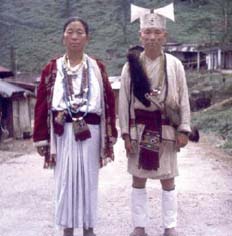 Indigenous knowledge is the basis for local level decision making in agriculture, healthcare, food preparation, education, natural resource management, and a host of other activities in rural communities.
Indigenous knowledge is the basis for local level decision making in agriculture, healthcare, food preparation, education, natural resource management, and a host of other activities in rural communities.
Arunachal Pradesh is the home to about twenty six major tribes and a number of sub-tribes. Forest is their main source of livelihood. In this paper the indigenous knowledge systems of conservation of plants, animals, sacred groves, etc., have been discussed. Primary data has been generated by conducting survey in 37 villages inhabited by Aka tribe.
The Akas in order to meet their day to day needs and requirements largely depend on the forests. The traditional ways of hunting, fishing, food gathering and extraction of materials for construction of house are sustainable and conservative. The in-built mechanism in their social and cultural tradition have made them thrifty on over-exploitation and contributed towards protection of the forests. The contractors who are tempted to make more earnings do not follow the traditional conservation systems and continue to exploit the forest to a greater extent. The moratorium imposed on timber exploitation was meant to effectively control the exploitation of forest resources. However, the illegal extraction of timber is going on covertly in the deep forests even now.
The Aka society is also experiencing reforms. As a forest dweller, tribes have evolved a distinct pattern of interaction with the forests which is sustainable, ensuring steady supply. There is a growing realization throughout the world that people’s participation is a crucial factor in sustainable development. Forest policy makers should consider traditional ways of management of their forest to bring more fruitful result and cooperation from local people, rather than imposition of new policies on them.
It is hoped that the study would help researchers and scholars working on forests in formulating plans for sustainable utilization and forest conservation.
/articles/role-indigenous-knowledge-system-conservation-forest-resources-case-study-aka-tribes